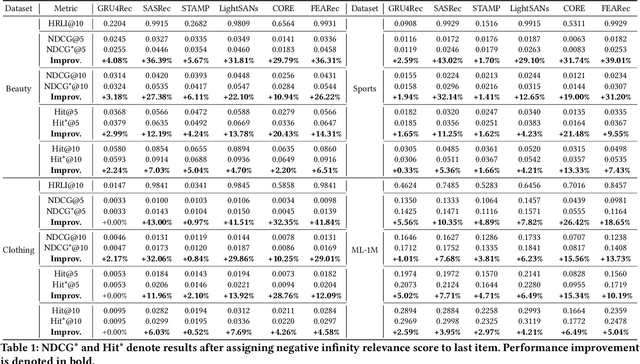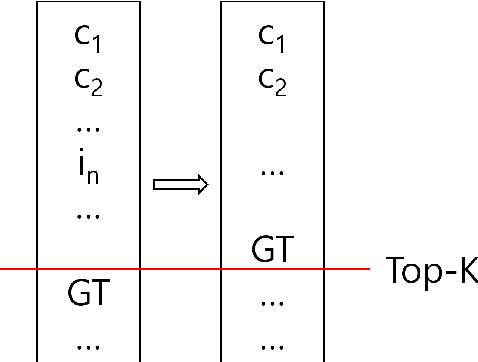Jeonglyul Oh
Measuring Recency Bias In Sequential Recommendation Systems
Sep 15, 2024


Abstract:Recency bias in a sequential recommendation system refers to the overly high emphasis placed on recent items within a user session. This bias can diminish the serendipity of recommendations and hinder the system's ability to capture users' long-term interests, leading to user disengagement. We propose a simple yet effective novel metric specifically designed to quantify recency bias. Our findings also demonstrate that high recency bias measured in our proposed metric adversely impacts recommendation performance too, and mitigating it results in improved recommendation performances across all models evaluated in our experiments, thus highlighting the importance of measuring recency bias.
MEMTO: Memory-guided Transformer for Multivariate Time Series Anomaly Detection
Dec 05, 2023Abstract:Detecting anomalies in real-world multivariate time series data is challenging due to complex temporal dependencies and inter-variable correlations. Recently, reconstruction-based deep models have been widely used to solve the problem. However, these methods still suffer from an over-generalization issue and fail to deliver consistently high performance. To address this issue, we propose the MEMTO, a memory-guided Transformer using a reconstruction-based approach. It is designed to incorporate a novel memory module that can learn the degree to which each memory item should be updated in response to the input data. To stabilize the training procedure, we use a two-phase training paradigm which involves using K-means clustering for initializing memory items. Additionally, we introduce a bi-dimensional deviation-based detection criterion that calculates anomaly scores considering both input space and latent space. We evaluate our proposed method on five real-world datasets from diverse domains, and it achieves an average anomaly detection F1-score of 95.74%, significantly outperforming the previous state-of-the-art methods. We also conduct extensive experiments to empirically validate the effectiveness of our proposed model's key components.
 Add to Chrome
Add to Chrome Add to Firefox
Add to Firefox Add to Edge
Add to Edge